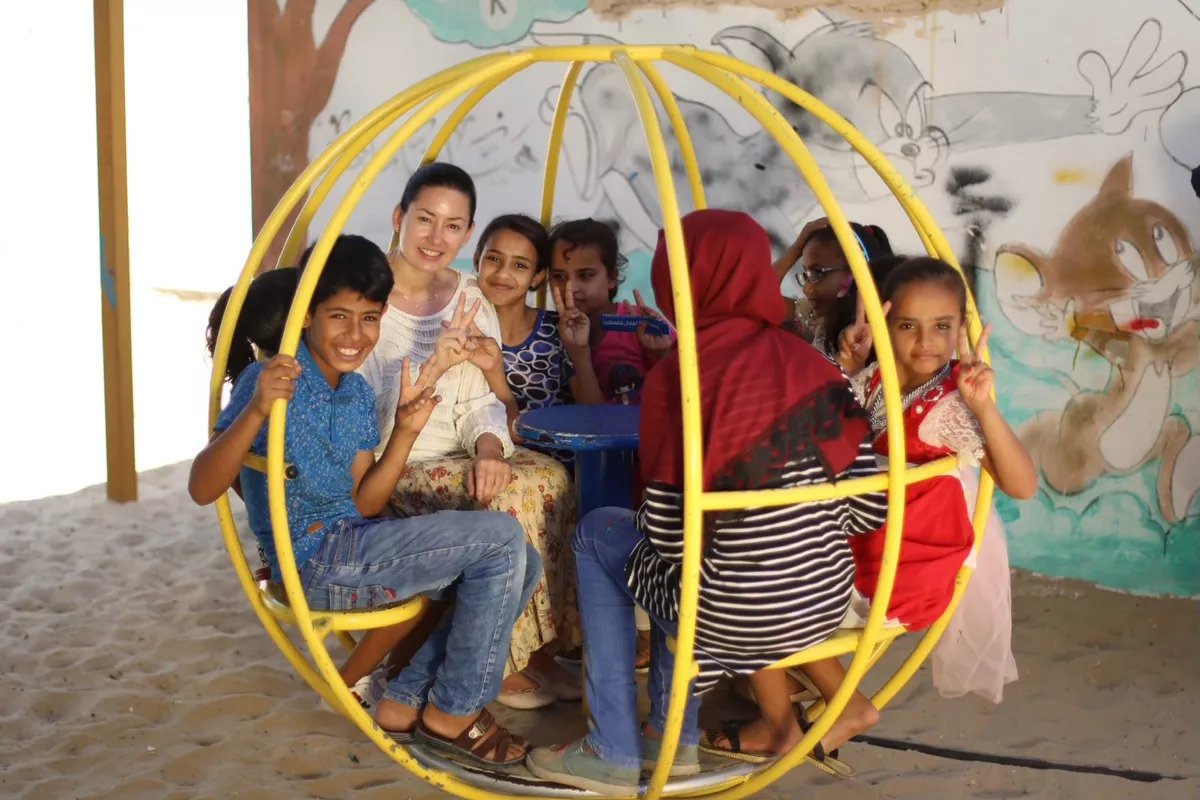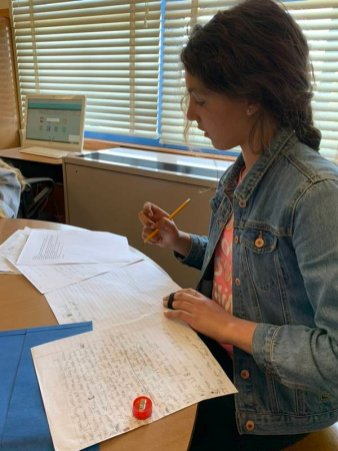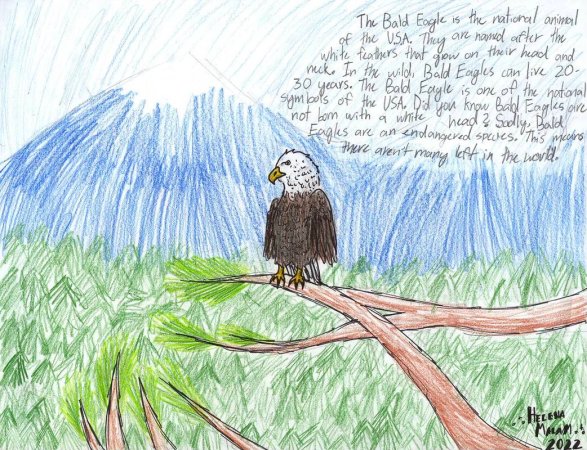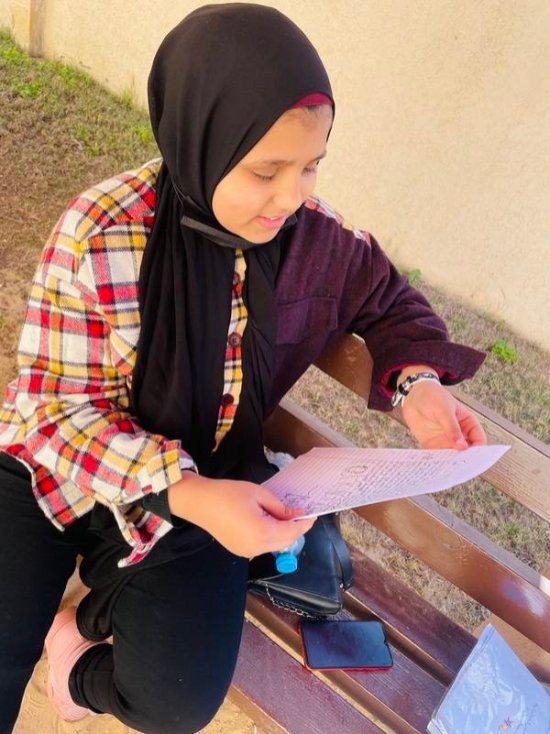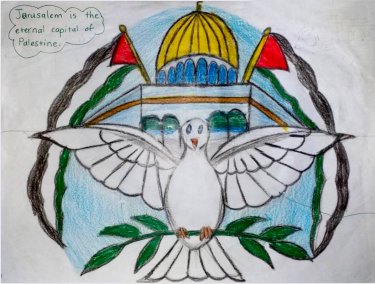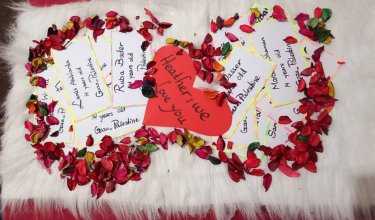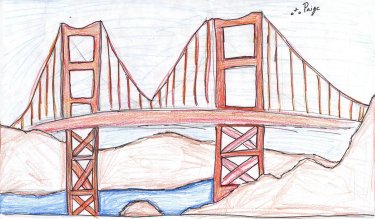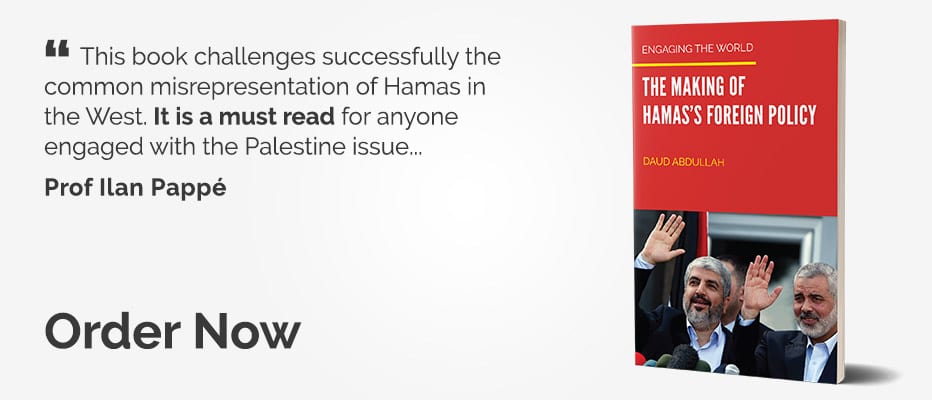Before this digital age of social media texts and direct messages, it was commonplace to receive heartfelt handwritten letters from a pen pal, a postcard from overseas or annual colourful festive cards.
It is an experience the Berkeley, California-based teacher, Heather La Mastro, aimed to rediscover with her students at the Jewish Community Centre of the East Bay in 2018.
The letters, she revealed to them, will be addressed to children in Gaza.
"It was a sweet moment. I had let them know of an opportunity to connect with children who are living in a war zone leading difficult lives and gave all 15 of them an individual choice to take part," explained Heather.
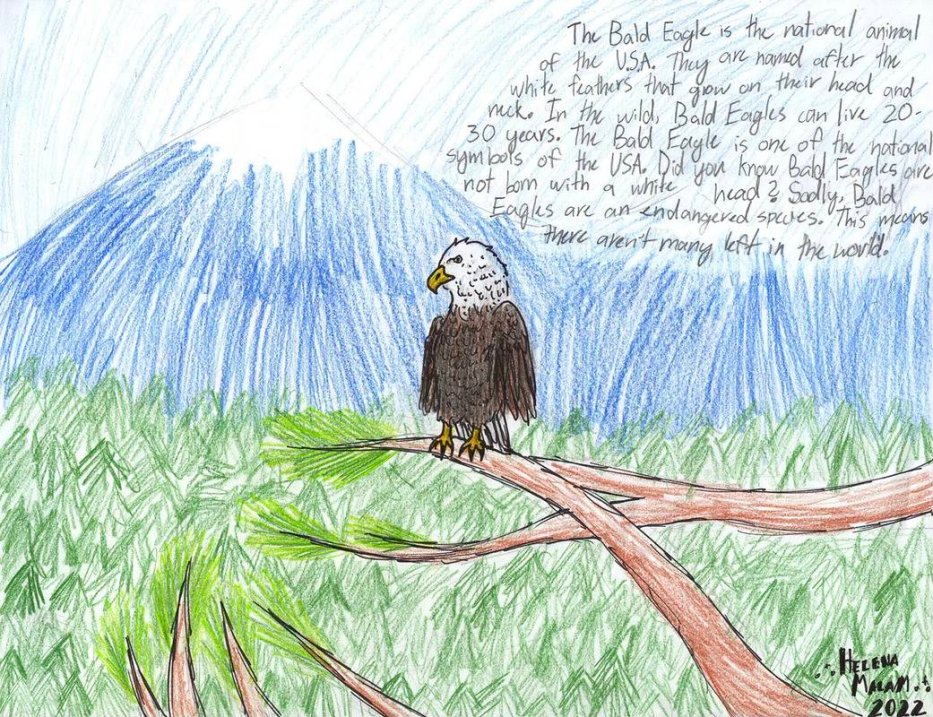
A picture of the American Bald Eagle was from Heather La Mastro's student, Helena, to represent her culture with her penpal in Gaza.
"I pulled out 15 yeses from the vote box; they were all eager and excited," she added. "And so we got started."
Having been teaching in some capacity for 25 years, Heather, who later founded Pen Palestine, was determined to more than simply entertain the children at the after-school community centre. She aspired to identify and enhance each of her students' talented skills in order to bring about change.
"Since developing class curriculums was in my complete control, it was a great opportunity for me to create an effective leadership programme based on activities that would really get them thinking on a deep level like activists," said Heather.
OPINION: Morocco won a bigger prize than the World Cup trophy
"It presented the chance for me to help them utilise their talent and figure out where to plug them in, so that they can be a part of a collective to achieve a positive goal."
An exemplary educator, Heather explained the process of navigating each student to use their strengths and to recognise that they have a significant part to play in making a difference in the world, no matter how far or near.
She noted how some students excelled in expressing their views through arts and creative endeavours, while others displayed impressive leadership skills by articulating more boldly and bravely via students' led chants and speeches.
"I wanted them to know there is always something they could contribute towards a good cause – there are other roles, besides the leader for people who are shy or nervous such as designing beautiful signs and building ideas. It was lots of fun to explore that with them," she said.
After learning some of the horrific standards Palestinians in Gaza were suffering under due to the siege imposed by Israel, one student, Heather shared, shouted "That's just rude!"
Keeping in mind the students were only fourth and fifth graders, she was careful to keep the extent of the brutal reality of Gaza at surface level.
"Children can't always understand politics, so I kept it simple and to their level of understanding. But it still disturbed them; another student of mine commented that this is why he hates religion, and so I had to explain to him it's not about religion, but abuse of power."
"He later wrote in his letter to his pen pal in Gaza how war is wrong, and we shouldn't be supporting it and that we must protect all and all the animals. These are the concerns that settled into the child's heart. And seeing this impact is what finally made me get serious about going to Palestine."
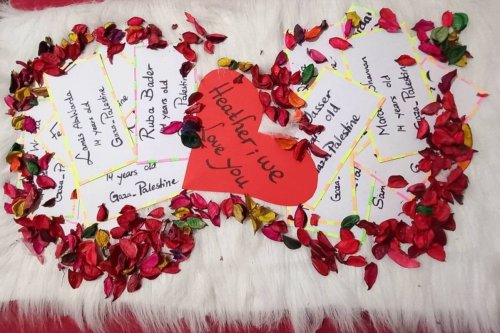
Introductory letters from students at the Halima Al-Saadyya High School For Girls in Gaza City
Having grown up in New York before moving to the West Coast, Heather observed the city's strange political influence, heavily favouring Israel, which played a role in her route to activism. She also noted that the US mainstream media narrative had persistently distorted the Palestinian struggle, even during the second Intifada.
"Since the time I was a child, I was always fascinated by current events and what's going on outside of the United States. And I would question why our local, New York-based Congressmen would stand up and say 'we support Israel'. They don't even deal with international policy but are always issuing undying and unwavering support for Israel," noted Heather.
"Also, language is very important in the news and, in my home growing up, the news was on the television every night and the name Palestine Liberation Organisation was repeated so I would ask what and who are they trying to liberate?"
The second Intifada began on 28 September, 2000, when Israeli opposition leader, Ariel Sharon, stormed Al-Aqsa Mosque with heavily armed Israeli Forces provoking a Palestinian uprising that lasted five years and left over 3,000 Palestinians and 1,000 Israelis dead.
Over 20 years later, the Occupation continues, and the Palestinian people remain vulnerable more than ever.
"Witnessing the attacks on TV as a child left a mark on me. I always knew there was something wrong there, that it wasn't a fair fight. I also remember feeling like I wanted to go out there and I held on to that feeling until, finally in 2018, after I did the pen pal activity with the children, I really made it happen. The stars aligned and I got into Gaza."
That summer, with assistance from the Palestine Children's Relief Fund (PCRF), a non-profit NGO providing free medical care for sick and injured Arab children in the Middle East, Heather was able to secure entry into Gaza.
The experience was powerful, she said. Despite the violence and stress imposed by the Israeli military, the people of Gaza embraced her, welcomed her to their homes and protected her like their own.
"I had the luxury of visiting nine to ten countries and experiencing a variety of cultures, but it was in Gaza where I met the kindest people," said Heather. "I've never felt so respected, loved and protected than the time I was there, and this made me want to keep working and learning from them."
During her trip, she prioritised meeting the children her students had exchanged letters with, and the memory instantly brought tears to her eyes. "It was amazing to witness not only how happy the children were, but all the people who were involved in the process. The teachers who handed out the letters couldn't believe how the students' faces lit up. It's given them the ability to feel seen and heard."
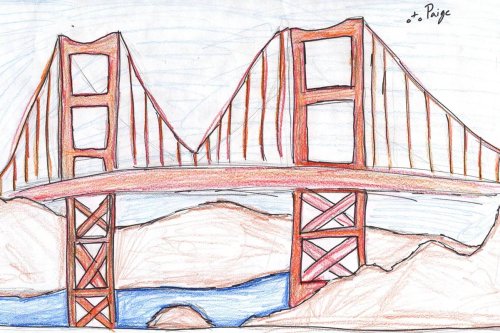
Drawing of the Golden Gate Bridge by my student Paige
They were keen to write to let their pen pals in the US know about their lives, likes and dislikes, hobbies, and common interests. "When you're younger, it's easier to focus on what makes you happy rather than what makes you scared. However, there are some 14 and 15-year-old girls, who have noted how 'annoying it is to have planes flying over you all the time' and that 'it's difficult when the F16s are dropping things all the time. But that is part of their reality.'"
The letter-writing sessions are occasions in themselves. Students would share drawings and make an effort to decorate and write with their best handwriting. It was a fine reminder of just how powerful the pen can be; it can form friendships that span across the globe.
Last year, during the 2021-2022 academic year, the project expanded internationally, connecting a total of 275 children, including 140 students from Gaza and 135 students from the US, Canada, Ireland and the Czech Republic.
"I'm constantly overcoming barriers – there are a lot of them – but I just get right back up because I'll never forget their smiles and the emotional support it is providing them," said Heather.
"The letters will be a collection of the living history of these children, their passions, stories, and dreams. I hope I'll do this for as long as I can and then pass it on to someone whom I trust, until all the barriers to their freedom are knocked down."
INTERVIEW: Meet the first Egyptian, Arab female to blast into space

